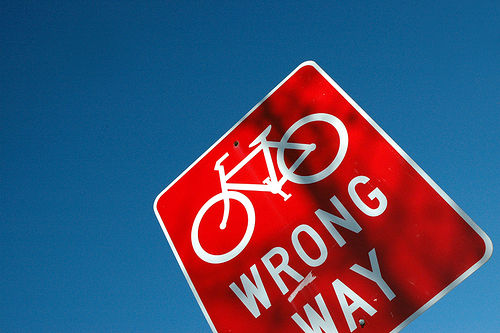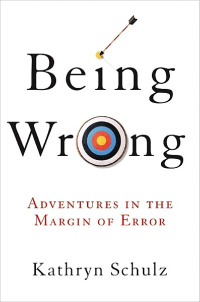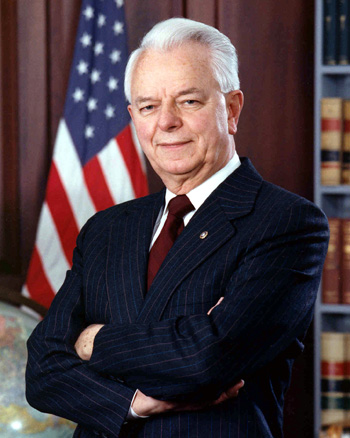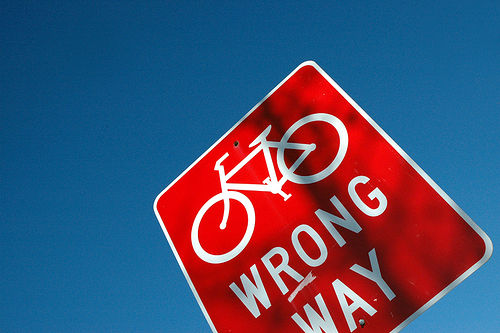 Photo: limonada via FlickrFirst things first: Don’t ask me how I went from being an editor of Grist to an expert in wrongness. It’s a long story. Suffice it to say that in 2006, I left Grist (with much regret) in order to write a book about being wrong. (That’s the eponymous Being Wrong: Adventures in the Margin of Error, published earlier this month by Ecco/HarperCollins).
Photo: limonada via FlickrFirst things first: Don’t ask me how I went from being an editor of Grist to an expert in wrongness. It’s a long story. Suffice it to say that in 2006, I left Grist (with much regret) in order to write a book about being wrong. (That’s the eponymous Being Wrong: Adventures in the Margin of Error, published earlier this month by Ecco/HarperCollins).
At first blush, these two jobs don’t seem to have much in common. Lately, though, I’ve been wondering about the overlap between my identity as an environmentalist and my identity as a wrongologist. Here’s why: For the past few months, I’ve been conducting a series of Q&As over at Slate — interviews with various interesting, well-known people about their relationship to being wrong. Not long after the series started, I got an email from a reader:
You should do an interview about wrong environmental predictions. “Too cheap to meter” — nuclear power — would be a good one. I’m not volunteering!
I was immediately inclined to agree with my correspondent: I should do a piece about wrong environmental predictions. But rather than look outward toward all the wrongheaded beliefs we’ve fought against, I thought: Why not look to our own mistakes? Justly or otherwise, environmentalists are already associated with self-righteousness, and that’s hardly a reputation that I (or Grist) want to fan. Moreover, and perhaps more to the point, environmentalists are no more immune to error than the species as a whole.
In fact, given the nature of their work, environmentalists might even be more susceptible to erring than others. The “environment” in “environmentalism” is that surpassingly messy and mutable information field known as the real world. The real world is a wonderful place — that’s why we’re all dedicated to protecting it — but it is, to put it mildly, exceptionally complex. Within it, controlled experiments are nearly impossible, genuine signals compete with generalized noise, false alarms masquerade as true, and the left field (that inconvenient source of surprise, disorientation, and disconfirmation) lurks everywhere. The work of environmentalists is to make sense of that messy situation, predict its future, and encourage appropriate action in light of those predictions.
 It’s a tough job, and one that is, as I say, dogged by the specter of screwing up. (To take just one example, consider Paul Ehrlich’s famous losing bet against Julian Simon over resource scarcity.) And there are other complications, too. How do we know if our predictions were truly wrong, or if the predictions promoted actions that then averted feared outcomes? When the stakes are as high as they often are in this domain, is it more important to be careful than to be right — that is, to “err on the side of caution”? Is it legitimate to say (as many do with respect to the Ehrlich bet, among other environmental issues) that however wrong we seem now, we are simply off on the timing, and will be proved right in the long run? (And if so, why are we generally unimpressed when others use that “long march of history” excuse?) Do we weaken our cause if we publicly acknowledge our mistakes? After all, while scientists, including environmental scientists, are often models of epistemological modesty, activists are often models of pragmatism — willing to streamline or simplify the facts (and sometimes even obscure or distort them) in the interest of sending a compelling message.
It’s a tough job, and one that is, as I say, dogged by the specter of screwing up. (To take just one example, consider Paul Ehrlich’s famous losing bet against Julian Simon over resource scarcity.) And there are other complications, too. How do we know if our predictions were truly wrong, or if the predictions promoted actions that then averted feared outcomes? When the stakes are as high as they often are in this domain, is it more important to be careful than to be right — that is, to “err on the side of caution”? Is it legitimate to say (as many do with respect to the Ehrlich bet, among other environmental issues) that however wrong we seem now, we are simply off on the timing, and will be proved right in the long run? (And if so, why are we generally unimpressed when others use that “long march of history” excuse?) Do we weaken our cause if we publicly acknowledge our mistakes? After all, while scientists, including environmental scientists, are often models of epistemological modesty, activists are often models of pragmatism — willing to streamline or simplify the facts (and sometimes even obscure or distort them) in the interest of sending a compelling message.
These are the kinds of questions I’d like to discuss in one of my upcoming Q&As. So I put it to the astute readers of Grist: What have environmentalists been most wrong about? How should we deal with our errors? And whom should I interview about how the environmental movement faces up to its fallibility? You can share your ideas in the comment section below, or email them to me at kathryn@beingwrongbook.com.
Kathryn Schulz will be in Seattle this week to talk about being wrong and read from her new book. You can join her on Wednesday, June 30, at 7:00 p.m. at Third Place Books or on Thursday, July 1, at 7:00 p.m. at Elliott Bay Book Company.



